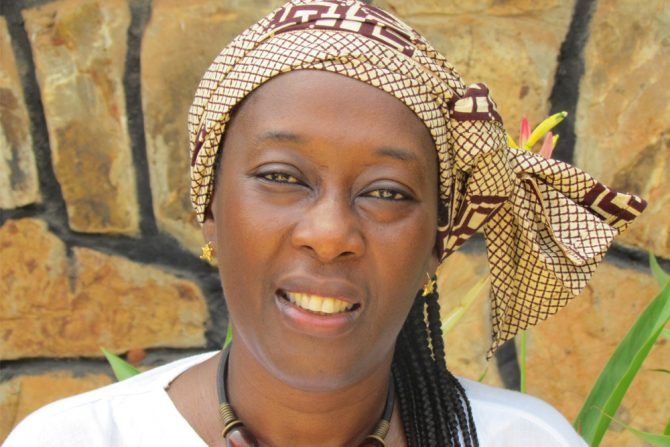Gambaga is a town in northern Ghana, formerly capital of the Northern Region of Ghana. It also serves as a sanctuary for women accused of witchcraft in greater Ghana. Witches of Gambaga is a documentary film, directed by Yaba Badoe, that tells the story of the women who have been condemned to live their lives in the poverty of the witches' camp in Gambaga. The film follows these women and explores how their lives have been destroyed by accusations of witchcraft.
Badoe, in her running commentary throughout the film, does mention that superstitions have a role in the accusations of, and continued belief in, witchcraft. However, she examines the prevalence of witchcraft in Ghana through a gendered lens that attempts to explain why it is exclusively women who end up living in the witches' camp in Gambaga. One of the particularly interesting ways she does this is exploring the relationship that the Chief of Gambaga - the Gambaran - has with the woman accused of witchcraft. Here, the women have to pay the Gambaran for sanctuary, work for him on his property, and when they have proven that are no longer a ‘witch’ they have pay him to return home. In this instance, there is an obvious benefit for him to perpetuate the belief in witchcraft within the superstitious communities. Furthermore, Badoe also explores how all women in the witches' camp are either elderly or middle aged - with the youngest women in the camp being in her early 30s - reinforcing certain ideas pertaining to women’s value and youthfulness. Through the way that Badoe engaged with the issue of witchcraft in Ghana, it is easy to see how the tradition is maintained through patriarchal beliefs and systems.
The film is striking in its simplicity, letting the situations and stories of the women who the film follows speak for themselves with Badoe offering further explanation when required. This allows the film to overcome the technical limitations of its creation and lead to a fantastically woven narrative explaining the plight of the women concerned.
The film was a surprisingly emotional affair as it humanises the suffering caused by patriarchal superstitions. Over 3,000 citizens have had their lives ruined and families stripped away from them on the basis of how a chicken dies; the main “trial by ordeal” used to determine the whether or not the accused is a witch. I found myself almost tearing up at certain instances surrounding discussions of the women’s families that they were forced to leave behind.
The film does a great job in highlighting how damaging patriarchal beliefs are, how they still linger in some parts of the world, and how they are causing extreme harm to the communities involved. For this alone, Yaba Badoe’s film is to be commended for engaging with this subject and telling the stories of these women.
Yaba Badoe at WORD Christchurch Festival 2018
The Witches of Gambaga Friday 31 August 2.30pm
Starry, starry night Friday 31 August 8pm to 9.15pm
Yaba Badoe: Fire, stars and witches Saturday 1 September 2.30pm to 3.30pm
The Freedom Papers Sunday 2 September 1pm
Edinburgh Festival director Nick Barley speaks to three of the international writers from The Freedom Papers collection – Yaba Badoe, Lloyd Jones and Juno Dawson – about what freedom means to them.
- Find works by Yaba Badoe in our collection
- Follow our coverage of WORD Christchurch Festival 2018



Add a comment to: Witches of Gambaga – A Film By Yaba Badoe: WORD Christchurch Festival 2018